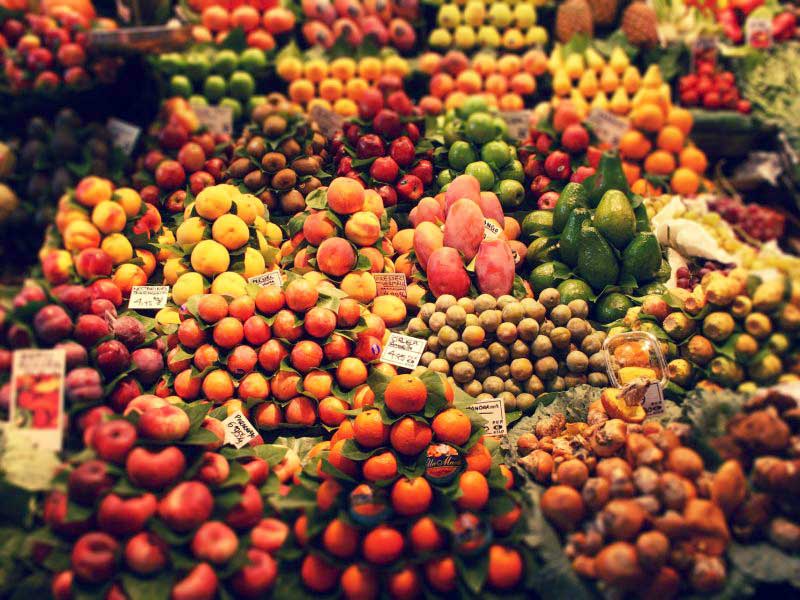It has become so easy in our age of instant gratification to get what we want, when we want it. This constant availability has had a detrimental effect on how we view our food: Chinese food at 2am? Done and delivered to your door. We want strawberries in mid-December and we want to be able to pick them up last thing at night from our local supermarket? In that case the manager has to ensure a constant supply or risk losing customers. With the world so open and accessible now and transportation so quick, it has become easier to find food from half way across the world than that which is produced on our doorstep. It will be a sad day when we lose the link between our food, the land and the people who produce it. But that isn’t happening any time soon thanks to the Slow Food Movement.
Slow Food, initially founded by Carlo Petrini, is a global, grassroots organisation with supporters in over 150 countries around the world that links the pleasure of food with a commitment to the community and the environment. Petrini and a group of activists in Italy during the 1980s wanted to fight back against the growing number of fast food restaurants that were springing up all over the country. They wanted to defend regional traditions, enjoy good food with all of its gastronomic pleasure and ensure a continued slow pace of life. Since then, the movement has evolved to embrace a comprehensive approach to food that recognises the strong connections between plate, planet, people, politics and culture.
They had one aim and that was to reinvigorate people’s love and interest in the food they were eating. They wanted to show the world where its food came from and how the food choices that we make don’t just affect us, but the world around us. They realised that even the smallest of local culinary tradition, regardless of where it can be found has been developed over years of accrued knowledge, and this collective knowledge and culture needed to be protected to ensure it can continue to be shared with future generations. The Slow Food Movement, in a nutshell, promotes the real enjoyment of good food and those systems that produce food which is good, clean and fair, for everyone.
The Slow Food Movement believes that traditional methods of farming are being threatened due to a demand for fast food and that modern methods of farming depend too much on chemical fertilisers and pesticides. The Slow Food Movement identifies those foods that are geographically specific and produced by methods that protect biodiversity. The movement encourages farmers to not only revive the old methods of cultivation and to grow organic and natural food, but it campaigns simultaneously to promote these indigenous food growing methods and the culture in which they are found. Heavily processed fast food requires intensive industrial farming in order to keep up with demand, effectively giving the kiss of death to a way of life that revolves around producing and eating great food in a relaxed, sociable way.
The Slow Food Movement has a variety of programmes through which it aims to inspire change internationally:
- Saving endangered foods and defending gastronomic traditions through biodiversity projects (more on this below).
- Teaching the pleasure of food and how to make good, clean and fair choices through food and taste education (more on this below).
- Celebration of the gastronomic traditions of the world, artisanal cheese and fish, and meetings of worldwide networks in international events.
- Addressing hot topics from animal welfare to land grabbing.
- Connecting young people who are passionate about changing the food system through the Slow Food Youth Network.
- Linking food producers, chefs, academics and representatives of local communities worldwide in the Terra Madre network.
- Creating the next generation of food and gastronomy professionals at the University of Gastronomic Sciences.
Slow food in schools
Slow Food realised that future generations had to be educated about food or risk having the next generation completely cut off from where their food comes from. Since 1993, Slow Food has collaborated with teachers and schools to educate children on the use of the sphere of the senses; to teach them about the importance of food products as a part of a society’s culture. Alongside teaching children the movement is planning two new adult education projects: the Master of Food and the University of Gastronomic Sciences.
The Ark of Taste
The Ark of Taste is maintained by the Slow Food Movement, it is an international catalogue of endangered heritage foods. The Ark is designed to preserve at-risk foods that are sustainably produced, unique in taste, and part of a distinct eco-region. The aim of this project is to identify and catalogue products, dishes and plants that are in danger of disappearing. Petrini states: “the world is losing many species of fruits and vegetables each day. We are losing domestic animal species as well. And one can’t be a gastronome without being an ecologist anymore”.
The future of the Slow Food Movement
Petrini was concerned that the connection between the people who ate the food and the people who produced it was being cut. Petrini noted: “today hardly anyone buys their wine directly from their trusted wine maker, or goes to the farm to buy eggs and a chicken or a rabbit; hardly anybody knows the baker who makes their bread, the charcutier who slaughters the pigs and cures the meat, the man who churns the milk of his sheep or goats to make cheese.” The local grocer’s shop is being swapped out for the supermarket, the pub is no longer a place for exchange of information and knowledge about food and best practices, people now search on the internet – fonts of food wisdom are being swept away by modernisation.
According to Petrini himself every generation must start again from zero. He reckons there are no certainties regarding the future of our food. He believes we must keep our eyes and ears open to change and that the challenge today is to return to the small scale, the hand made, to local distribution. He thinks that what we call ‘modern’ is out of date. Mass production isn’t the answer, it’s another problem in itself. In order to overcome our issues we must change our behaviour and the only way to do that is through education and above all supporting local producers.

